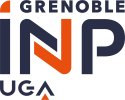The 2025 EMA Young Scientist Award goes to Johanna Fischer (September 16th, 2025)

The EMA Young Scientist Award 2025 has been awarded to Johanna Fischer, in recognition of her contributions to the field of multiferroics and magnetic skyrmions. With her combined theoretical and experimental perspective, she has demonstrated a clear vision for advancing topological spin textures towards real-world applications. More information (in French): press release of CNRS. Congratulations!
Read moreMonolayer control of spin-charge conversion in van der Waals Heterostructures (September 16th, 2025)

2D materials and van der Waals (vdW) heterostructures are promising candidates to build efficient THz spintronic emitters. Here, we demonstrate the drastic modification of THz spintronic emission by inserting a single layer of MoSe2 in the PtSe2/graphene vdW heterostructure. Ab initio calculations indeed show the emergence of Rashba states due to the electronic hybridization between […]
Read moreMagnetic vortex dynamics probed by time-resolved magnetic helicoidal dichroism (September 12th, 2025)

Time-resolved magnetic helicoidal dichroism (MHD) was successfully used to assess the ultra-fast dynamics of magnetization. This first attempt to use an MHD-based technique was demonstrated on a magnetic vortex structure hosted by a permalloy pacman micropillar (diameter~15nm, thickness~80nm). Micromagnetic simulations allowed to link the features identified in the MHD signal to a process of regeneration […]
Read moreseminar – CVD growth and properties of bi-dimensional chalcogenides (September 11th, 2025)

On Monday September 22th 2025, we have the pleasure to welcome in SPINTEC Fabrice Oehler from C2N-CNRS Palaiseau. He will give us a seminar at 14:30 entitled : CVD growth and properties of bi-dimensional chalcogenides Place : IRIG/SPINTEC, auditorium 445 CEA Building 10.05 (presential access to the conference room at CEA in Grenoble requires an […]
Read moreNanosecond stochastic operation in perpendicular superparamagnetic tunnel junctions (September 08th, 2025)

Superparamagnetic tunnel junctions have emerged as promising stochastic neurons for low-energy cognitive computing. We report, for the first time, nanosecond-scale mean waiting times between magnetization reversals in perpendicularly magnetized tunnel junctions, enabled by a strong entropic contribution to the thermally activated switching dynamics. Magnetic tunnel junctions (MTJs) consist of a free and a fixed […]
Read moreModulating TeraHertz emission using 2D materials and ferroelectricity (September 08th, 2025)

The modulation of THz spintronic emitters represents a real challenge nowadays. Here, we consider a THz emitter made of 2D materials grown by molecular beam epitaxy (MBE) on large area and transferred on LiNbO3. The low dimensional character makes this system sensitive to the ferroelectric polarization of LiNbO3. Using this proximity effect, we demonstrate the […]
Read moreseminar – Spectroscopic Signatures of Chirality and Resonances for Designer Magnonics (August 06th, 2025)

On October 03th 2025, Suraj Thyagarajan from University of Singapore now postdoctoral fellow at SPINTEC will give us a seminar at 11:00 entitled Spectroscopic Signatures of Chirality and Resonances for Designer Magnonics Place : IRIG/SPINTEC, auditorium 445 CEA Building 10.05 (presential access to the conference room at CEA in Grenoble requires an entry authorization. Request […]
Read moreseminar – High-pressure, high-temperature extrusion of nanowire resonators for magnetic field microscopy (July 24th, 2025)

On September 23th 2025, we have the pleasure to welcome in SPINTEC Alexis Wartelle from Institut Néel. He will give us a seminar at 14:00 entitled : High-pressure, high-temperature extrusion of nanowire resonators for magnetic field microscopy Place : IRIG/SPINTEC, auditorium 445 CEA Building 10.05 (presential access to the conference room at CEA in Grenoble […]
Read moreTopological analysis and experimental control of DW transformations in cylindrical wires (July 01st, 2025)

Topology is a powerful tool for categorizing magnetization textures by defining a topological index in both two-dimensional (2D) systems, such as thin films or curved surfaces, and in 3D bulk systems. In the emerging field of 3D nanomagnetism, both volume and surface topological numbers must be considered, requiring the identification of a proper global topological […]
Read morePost-Doctoral position – FPGA-based and ASIC-based system level processor architecture development (July 01st, 2025)

POST DOC Recruitment on FPGA-based and ASIC-based system level processor architecture development Context: The last decade has seen the emergence of numerous studies around integrated nanoelectronic technologies for a growing number of application areas, ranging from the Internet of Things, to integrated components specialized in the management and optimization of energy consumption, environmental monitoring, safety […]
Read more



